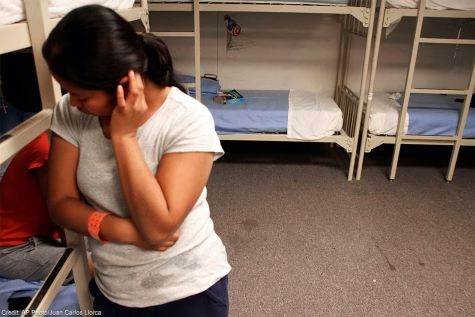
Mexican Women Dominate Migrant Shelters
Numerous media reports are exposing the data that shelters in Tijuana report that 80% of the women arriving at their facilities are Mexican nationals. These women claim they are fleeing violence, organized crime, and domestic abuse. “The majority are Mexican women, and this has been going on for the better part of two years,” said Sister Albertina María Paoletti, director of the Madre Asunta shelter. They often plan to cross the border, with or without CBP One appointments.
Lack of Appointments Creates Challenges
Many of these women lack CBP One appointments, which are required for legal border crossings to seek asylum. “We try to convince them not to cross without one, but most don’t listen,” said Paoletti. Shelter operators have observed a rise in deported women returning to try crossing again.
Violence Drives Migration
Most women at these shelters come from cartel-ravaged states like Michoacán, Guanajuato, and Jalisco. These regions have seen surges in violence, leaving residents with little choice but to flee. “They all have a story,” Paoletti said, emphasizing the desperation of these migrants.
Overflowing Shelters Strain Resources
Shelters in Tijuana are reaching capacity. “We are starting to get full again,” Paoletti noted. Women and children are being turned away due to a lack of resources. Some women have asked to sleep in gardens or patios, highlighting the dire conditions.
Taxpayer Costs Demand Transparency
This humanitarian crisis has financial implications for U.S. taxpayers. Migrants seeking asylum eventually tap into federal and state resources, including legal aid, housing, and welfare programs. Transparency about these costs is essential for voters to understand how their tax dollars are allocated.
The Importance of Transparency
Without clear data, taxpayers cannot evaluate the effectiveness or fairness of migration policies. Shelters like Madre Asunta provide critical support, but their struggles underscore the larger systemic issues at play. “We don’t want to accept anyone unless we will be able to take care of them properly,” Paoletti said.
What Can Be Done?
Policymakers need to address the bottleneck in asylum appointments and provide support for overwhelmed shelters. Voters must demand accountability to ensure tax dollars are used effectively and ethically.
Bottom Line
The influx of Mexican women at Tijuana shelters reflects a complex humanitarian and policy issue. For taxpayers, understanding the costs and implications is crucial. Transparency in resource allocation can pave the way for informed decisions and effective solutions.
